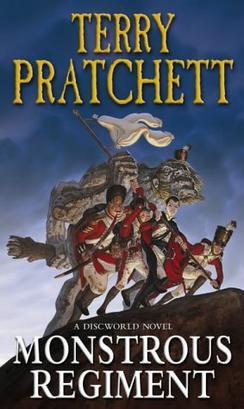In sixteenth century in the British Isle, the concept of a woman as the ultimate source of authority disquieted many religious thinkers and writers. In Scotland, John Knox, later the founder of the Presbyterian Church, famously complained about the coming "regiment" (or rule by) of Mary Stuart, soon to be Mary Queen of Scots.
The 1558 pamphlet with which he vented his spleen was titled "The First Blast of the Trumpet against the Monstrous Regiment of Women".

The Wiki here.
That kind of explains the characters, doesn't it?
(I picked this tidbit up not from the Wiki, but from David Starkey's Elizabeth: The Struggle for the Throne (HarperCollins Publishers, 2001, pp. 110-111), where I also learned that in their personal letters Henry VIII referred to Anne Boleyn's breasts as her "pretty duckies".)
The 1558 pamphlet with which he vented his spleen was titled "The First Blast of the Trumpet against the Monstrous Regiment of Women".

The Wiki here.
That kind of explains the characters, doesn't it?
(I picked this tidbit up not from the Wiki, but from David Starkey's Elizabeth: The Struggle for the Throne (HarperCollins Publishers, 2001, pp. 110-111), where I also learned that in their personal letters Henry VIII referred to Anne Boleyn's breasts as her "pretty duckies".)